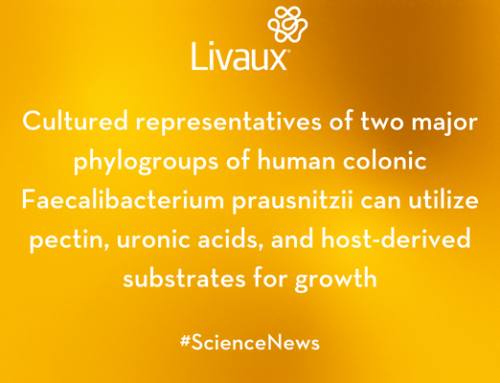Martin,R, Miquel,S, Chain,F, Natividad,JM, Jury,J, Lu,J, Sokol,H, Theodorou,V, Bercik,P, Verdu,EF,Langella,P, Bermudez-Humaran,LG, BMC Microbiol 15:67 (12 pages), 2015
The human gut houses one of the most complex and abundant ecosystems composed of up to 10 (13)-10(14) microorganisms. The importance of this intestinal microbiota is highlighted when a disruption of the intestinal ecosystem equilibrium appears (a phenomenon called dysbiosis), leading to an illness status, such as inflammatory bowel disease (IBD).
Indeed, the reduction of the commensal bacterium Faecalibacterium prausnitzii (one of the most prevalent intestinal bacterial species in healthy adults) has been correlated with several diseases, including IBD, and most importantly, it has been shown that this bacterium has anti-inflammatory and protective effects in pre-clinical models of colitis.










